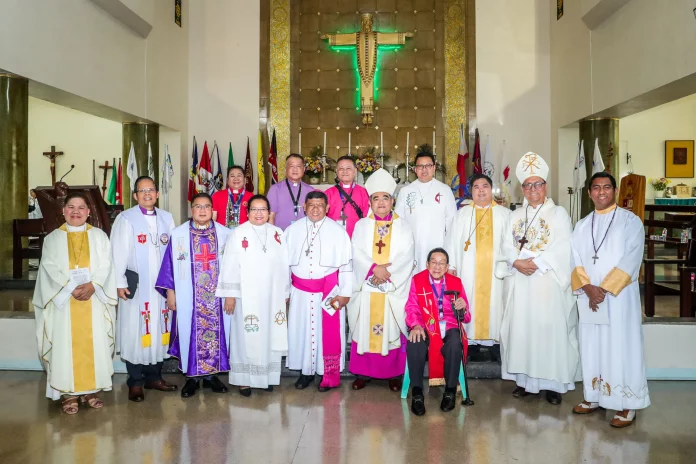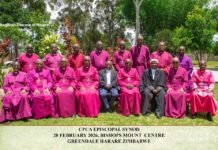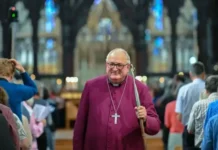MANILA, Philippines – The Philippines’ biggest group of Christian churches vowed to continue fighting for justice as it celebrated its 60th anniversary on Wednesday, November 22.
The National Council of Churches in the Philippines (NCCP), known for its defense of human rights, marked its sixth decade through an ecumenical service at the Cathedral of Saint Mary and Saint John along E. Rodriguez Sr. Avenue in Quezon City.
The service gathered around 400 people – including Protestant bishops, men and women in semi-formal or business attire, women in white veils who occupied the front pews, and even a bishop representing the Roman Catholic Church – in the 61-year-old Anglican cathedral on Wednesday morning.
In a speech, Bishop Raoul Victorino noted the NCCP’s history of “helping the poor and the oppressed, and fighting for freedom, for truth, and for justice.”
Victorino, 89, president of the Iglesia Unida Ekyumenikal, is one of the founding members and also a former chairman of the NCCP. He is a veteran lawyer who once served as associate justice of the anti-graft court Sandiganbayan and as chief presidential legal counsel under then-president Gloria Macapagal Arroyo.
The Christian leader, who prefers the title “bishop” over “justice,” said he was in the same cathedral when the NCCP was born in 1963.
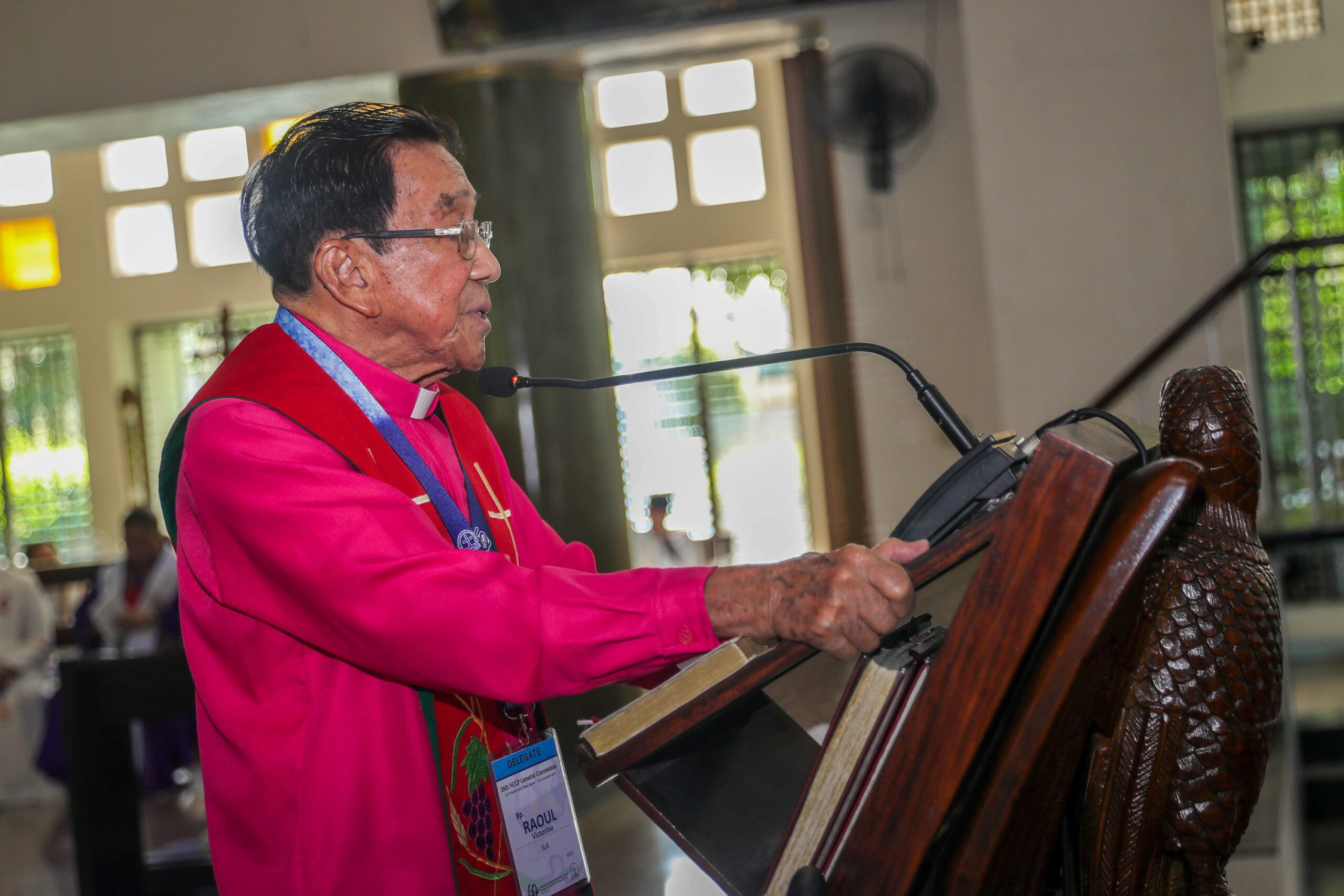
“We respect the position and the stand of the NCCP on murders, on extrajudicial killings, and the oppressors. We will continue to fight for what is right and what is the truth,” said Victorino, adding that this task entails fighting “murderers” and “corrupt government officials.”
“Let us fight for justice and let us also walk humbly before God,” he added.
Victorino also referred to the red-tagging of the NCCP, the baseless claims by the government linking church members to communist groups. “If we want to stop the red-tagging of NCCP, let us show that what we are doing is all for the glory of God!” he added in a mix of English and Filipino.
Outspoken council
The NCCP includes 10 member-churches, including the prominent Iglesia Filipina Independiente or Aglipayan Church, whose bishops were red-tagged under then-president Rodrigo Duterte.
The NCCP is known to be outspoken on social issues, as when it condemned Duterte’s anti-drug campaign and scored Israel over its “lopsided” conflict with Palestine.
In a homily on Wednesday, the Most Reverend Brent Harry Alawas, prime bishop of the Episcopal Church in the Philippines, recounted how the NCCP spoke against the rice tariffication law signed by Duterte in February 2019.
The rice tariffication law lifted import restrictions on rice, a staple commodity in the Philippines. Alawas said this paved the way for imported rice to flood the local market to the detriment of Filipino farmers.
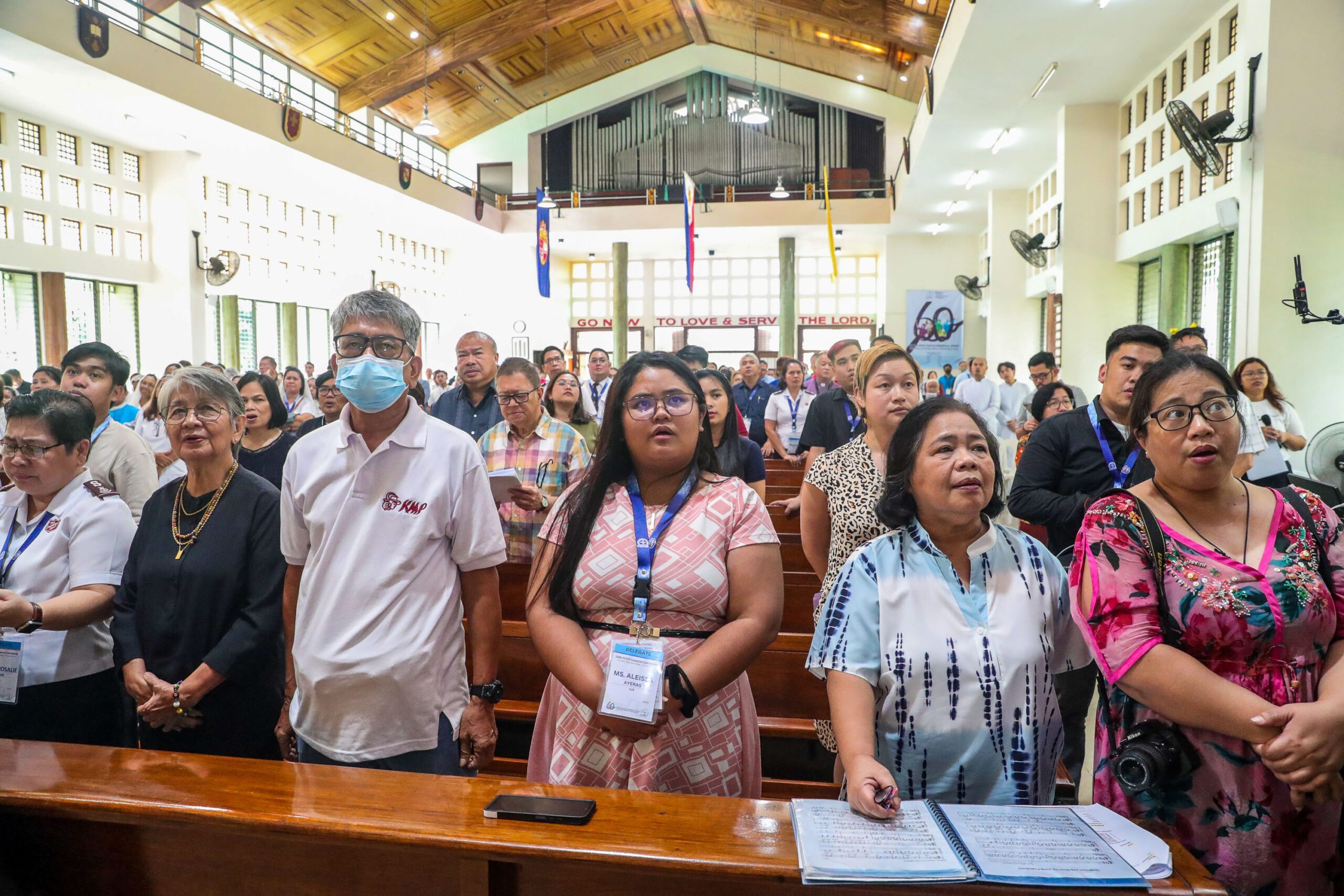
Alawas said that on top of issuing a statement condemning the law, the NCCP encouraged their people to buy rice directly from farmers, even if it meant higher prices.
“Our advocacies become more effective if our people on the ground exercise the sacrificial act of taking efforts to bypass the established trading system and directly buy from our farmers at a price that will allow them to earn an income. We do this because we are called to do what is true, holy, just, pure, winsome, and of Godly virtue,” said Alawas.
Read it all at the Rappler
